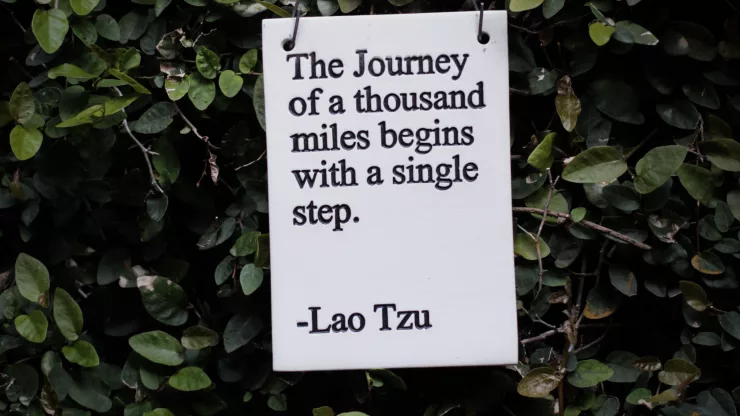Major life transitions, such as moving to a new city, starting a new job, or ending a long-term relationship, can be incredibly challenging.
These changes can often be overwhelming and leave individuals feeling lost and uncertain about their future.
However, there are coping strategies that can help individuals navigate these transitions and come out stronger on the other side.
Here are some tips for coping with major life transitions.
Acknowledge and Accept Change
The first step in coping with major life transitions is to acknowledge and accept that change is happening.
It is important to recognize that change is a natural part of life and that it can lead to growth and new opportunities.
Accepting the change can be difficult, but it is necessary for moving forward. It is also important to allow yourself time to grieve the loss of what was familiar and comfortable.
Create a Support System
Having a support system is crucial during times of major life transitions. A support system can consist of family, friends, or a therapist.
It is important to communicate your needs to your support system and ask for help when you need it. This support can provide encouragement, guidance, and a listening ear during difficult times.
Take Time for Self-Care
During times of major life transitions, it is important to prioritize self-care. This can include taking time for yourself, engaging in activities that bring you joy, and practicing self-compassion. Self-care can help manage stress and promote well-being during difficult times.
Set Realistic Goals
Setting realistic goals can help individuals stay focused during major life transitions.
It is important to break down larger goals into smaller, achievable steps.
This can help individuals feel a sense of accomplishment and progress, even during difficult times.
Embrace New Opportunities
Major life transitions can often bring new opportunities. It is important to embrace these opportunities and explore new possibilities.
This can lead to personal and professional growth, as well as new connections and experiences.
Learn from Past Experiences
Reflecting on past experiences can provide valuable insight and perspective during major life transitions. It is important to learn from past experiences and use this knowledge to navigate new challenges.
Maintain a Positive Outlook
Maintaining a positive outlook can be difficult during major life transitions, but it is important for mental and emotional well-being. This can include practicing gratitude, focusing on the positives, and reframing negative thoughts.
Seek Professional Help if Needed
If coping strategies are not sufficient, seeking professional help can be beneficial. A therapist can provide additional support and guidance during difficult times.
Celebrate Small Victories
Celebrating small victories can provide a sense of accomplishment and momentum during major life transitions. It is important to acknowledge progress and celebrate achievements, no matter how small they may seem.
FAQ
How long does it take to adjust to a major life transition?
Adjusting to a major life transition can vary from person to person and depend on the nature of the transition. It is important to give yourself time to adjust and be patient with the process.
It can take anywhere from a few weeks to several months to fully adjust to a major life transition.
How can I stay motivated during a major life transition?
Staying motivated during a major life transition can be challenging, but setting realistic goals and celebrating small victories can help.
It is also important to maintain a positive outlook and focus on the opportunities that the transition may bring.
Seeking support from a therapist or support system can also provide encouragement and motivation.

With a deep passion for personal development, Ben has dedicated his career to inspiring and guiding others on their journey towards self-improvement.
His love for learning and sharing knowledge about personal growth strategies, mindfulness, and goal-setting principles has led him to create My Virtual Life Coach.
Contact Ben at [email protected] for assistance.




